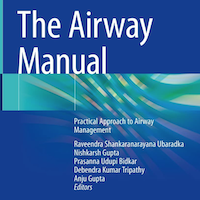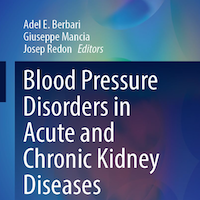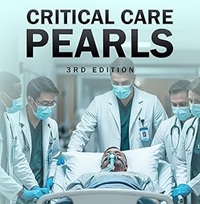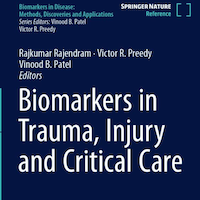Tag: creatinine
The Dangerous Duo: How Delirium Compounds Risks in Acute Kidney Injury
This systematic review and meta-analysis of over 158,000 critically ill patients reveals a significant link between Acute Kidney Injury (AKI) and delirium, affecting approximately 32% of patients with AKI. The study found... read more
Beyond Liver Failure: MELD-XI Predicts Sepsis Mortality
This retrospective cohort study investigated the utility of the MELD-XI (Model for End-Stage Liver Disease-Excluding INR) score as a predictor of 30-day mortality in over 16,600 adult ICU patients with sepsis, using data... read more
The Sepsis Tightrope: Tracking Antibiotic Levels to Hit the Sweet Spot in the ICU
This prospective, observational study examined the beta-lactam antibiotic concentrations in the crucial first 48 hours of treatment for patients with community-acquired sepsis in the Intensive Care Unit (ICU). The study... read more
AI Alert: Machine Learning Predicts Septic Shock Early in the ICU
This study developed and successfully validated a machine learning (ML) model designed to provide an early prediction of septic shock in intensive care unit (ICU) patients diagnosed with sepsis. Best Performer: Out of... read more
Better Kidney Score: 6-Hour Urine Test Outperforms Standard Measures for ICU Mortality
This prospective, single-center observational study investigated whether using 6-hour urine creatinine clearance (CrCl) could serve as a more effective measure for the kidney component of the SOFA score in ICU patients. Key... read more
Beyond Creatinine: A Systematic Review of Biomarker Performance (NGAL, KIM-1, TIMP-2·IGFBP7) for Acute Kidney Injury in the ICU
This systematic review analyzed 35 studies to assess the performance of three key Acute Kidney Injury (AKI) biomarkers—NGAL, KIM-1, and TIMP-2 ⋅ IGFBP7—in the Intensive Care Unit (ICU) setting. NGAL (Neutrophil Gelatinase-Associated... read more
TyG Index And Short-term Mortality in Patients with Cardiogenic Shock
The triglyceride-glucose (TyG) index is significantly associated with short-term mortality in patients with cardiogenic shock (CS) and may serve as a useful biomarker for risk stratification. This retrospective cohort... read more
Successful Clearance of Persistent Staphylococcus Aureus Pneumonia Using High-dose Continuous Infusion Cefazolin
High-dose cefazolin (10 g daily), given as a continuous infusion (CI), was able to clear community-acquired methicillin-susceptible Staphylococcus aureus (MSSA) pneumonia while not exhibiting any signs of toxicity or adverse... read more
Fluid Bolus Therapy with 20% Albumin vs. Crystalloid-based Regimen
In this trial involving adult patients undergoing cardiac surgery with cardiopulmonary bypass, 20% albumin fluid bolus therapy (FBT) compared to crystalloid FBT did not decrease the occurrence of acute kidney injury (AKI).... read more
7-day Fluid Balance Associated with Poor Outcomes
The net fluid balance in patients with sepsis 7 days following ICU administration was significantly related to mortality during hospitalization. Specifically, a 7-day fluid balance > 5,240 mL was associated with poor... read more
Increased Lactate Dehydrogenase to Albumin Ratio Associated with Short-term Mortality in Septic ICU Patients
Elevated lactate dehydrogenase to albumin ratio (LAR) was found to be significantly associated with an increased risk of all-cause mortality at 28 and 90 days in septic patients. LAR was suggested to be promising biomarker... read more
Predictive Biomarkers of Mortality in ICU Patients with Severe COVID-19
This study shows changes in hematological, biochemical, and inflammatory parameters in COVID-19 non-surviving patients. Lymphopenia, neutrophilia, and thrombocytopenia, as well as increased levels of CRP, AST, creatinine,... read more
Factors Affecting the Duration of Hospitalization in Urology and Nephrology Patients in the ICU
Factors affecting ICU stay length in Urology and Nephrology patients who required close monitoring and specialized medical staff were investigated. The study found a positive association between prolonged ICU stays and elevated... read more
Using Diuretic Therapy in the Critically Ill Patient
Diuretics are routinely prescribed in critically ill patients but significant variation in practice exists. In this article, we summarize current data relevant to diuretic prescribing. What are the indications for diuretics... read more
AKI Risk Factors in ICU Patients Using Colistin
Colistin, an antibiotic of polymyxin group, has recently been increasingly used in the treatment of multidrug resistant gram-negative bacteria. However, it has serious adverse effects such as acute kidney injury (AKI). We... read more
Omadacycline Treatment of Severe Pneumonia Complicated with ARDS During COVID-19
Metagenomic next-generation sequencing (mNGS) has a significant value in the diagnosis of Chlamydia psittaci infection. Timely treatment of omadacycline can improve prognosis and provide a promising new option for the treatment... read more
Clinical Outcomes in Critically Ill COVID-19 Unvaccinated Patients Admitted to the ICU
We analyzed unvaccinated critically ill ICU patients with COVID-19 and interpreted their demographics, clinical characteristics, comorbidities, and laboratory data upon ICU admission for a better understanding of their impact... read more
Urine Output-based Sepsis-associated AKI: Clinical Implications
This paper offers comprehensive insights into the epidemiology of acute kidney injury (AKI), and we commend the authors for their significant contribution. They revealed an increase in the number of mild cases among AKI stage... read more
PLASMIC Score Role in the Management of Thrombotic Thrombocytopenic Purpura
At centers that are resource-limited and where ADAMTS-13 testing is not readily available, it is imminent that treatment is started immediately based on the clinical presentation and PLASMIC score. A PLASMIC score can... read more
Association of Vancomycin Plus Piperacillin-tazobactam with Early Changes in Creatinine vs. Cystatin C
Although dozens of studies have associated vancomycin + piperacillin–tazobactam with increased acute kidney injury (AKI) risk, it is unclear whether the association represents true injury or a pseudotoxicity characterized... read more
Acute Kidney Injury Related to Intoxication From Synthetic Cannabis
Acute kidney injury (AKI) occurs infrequently in young patients and often raises concern for irreversible or deadly etiologies. However, AKI related to synthetic marijuana, colloquially known as K2, is an increasingly common... read more
Aspirin is Linked with Increased Risk of Heart Failure
Aspirin use is associated with a 26% raised risk of heart failure in people with at least one predisposing factor for the condition. That’s the finding of a study published today in ESC Heart Failure, a journal of the European... read more









